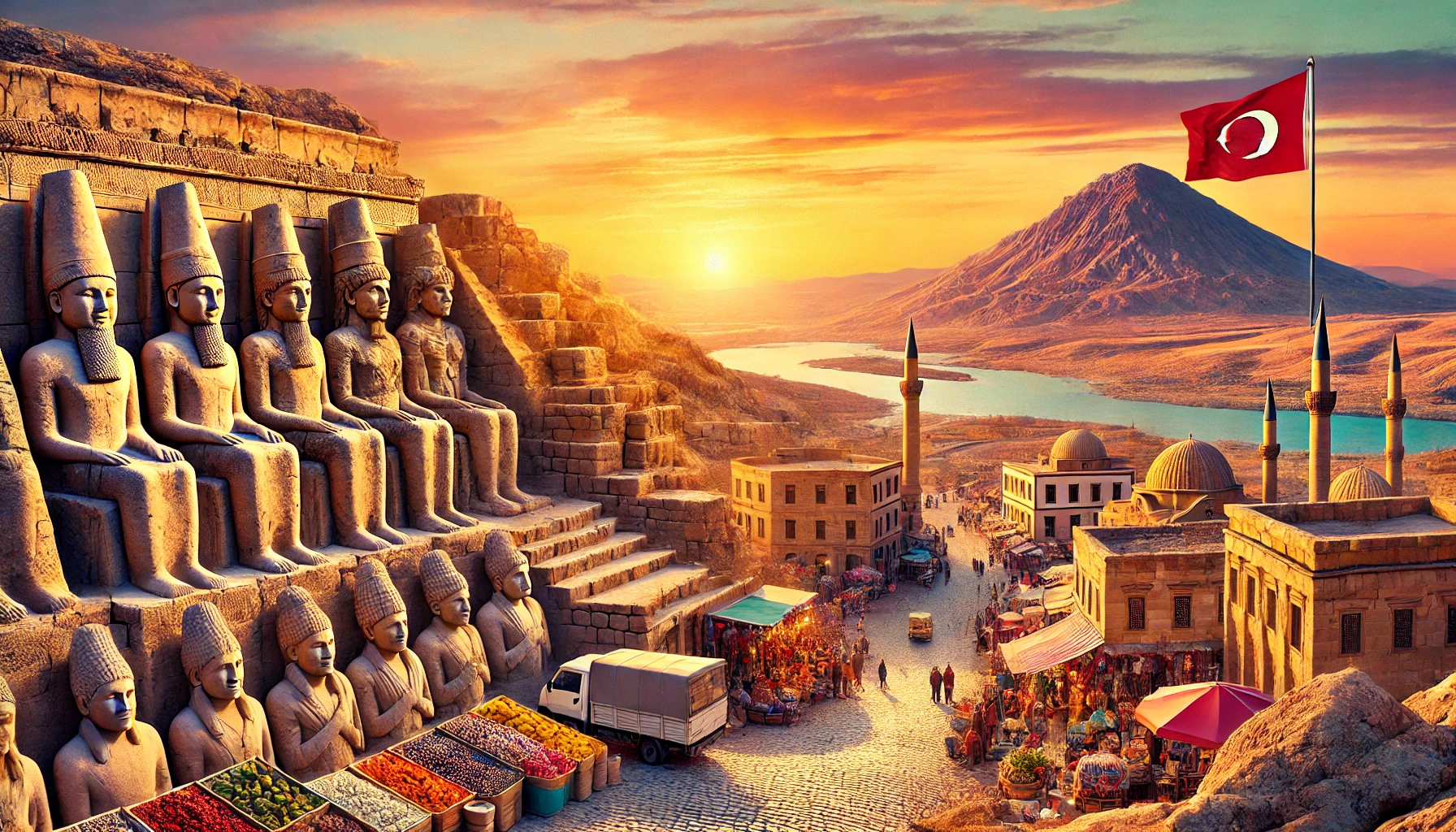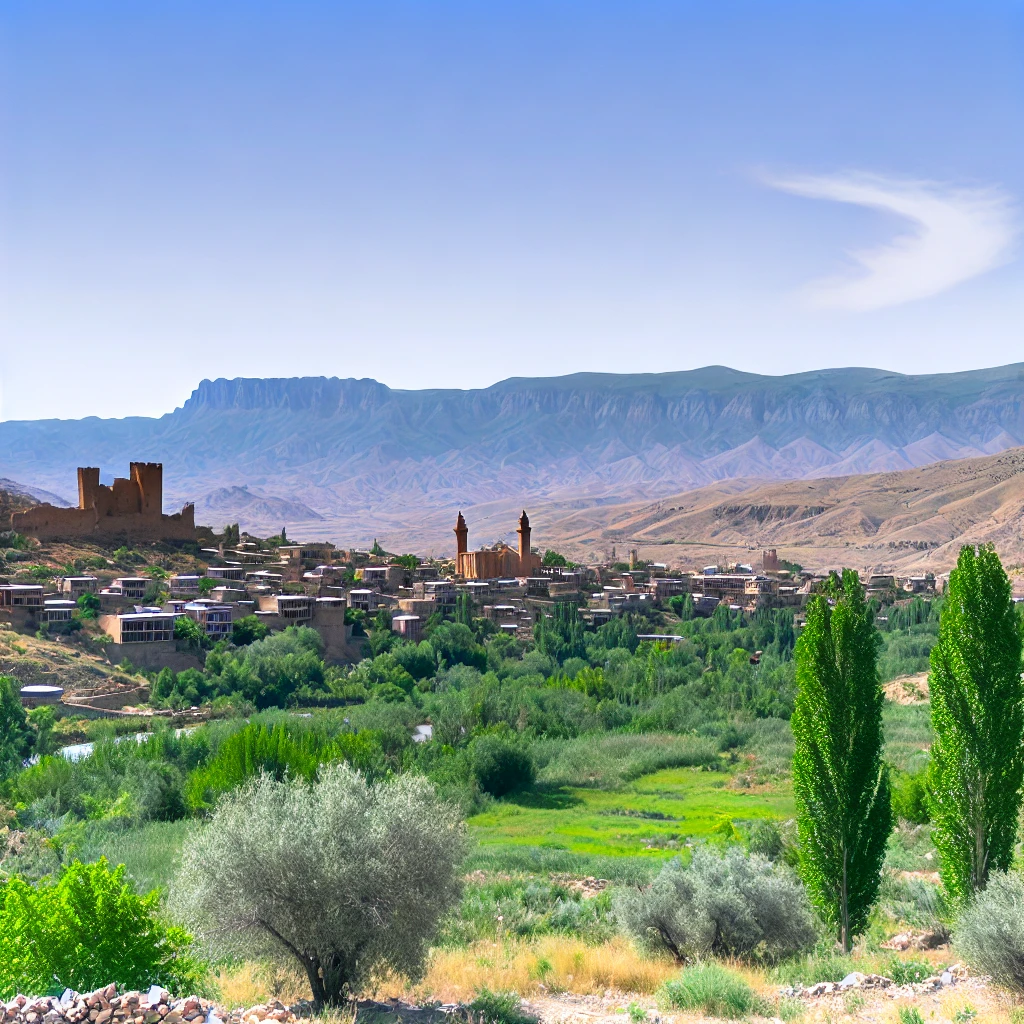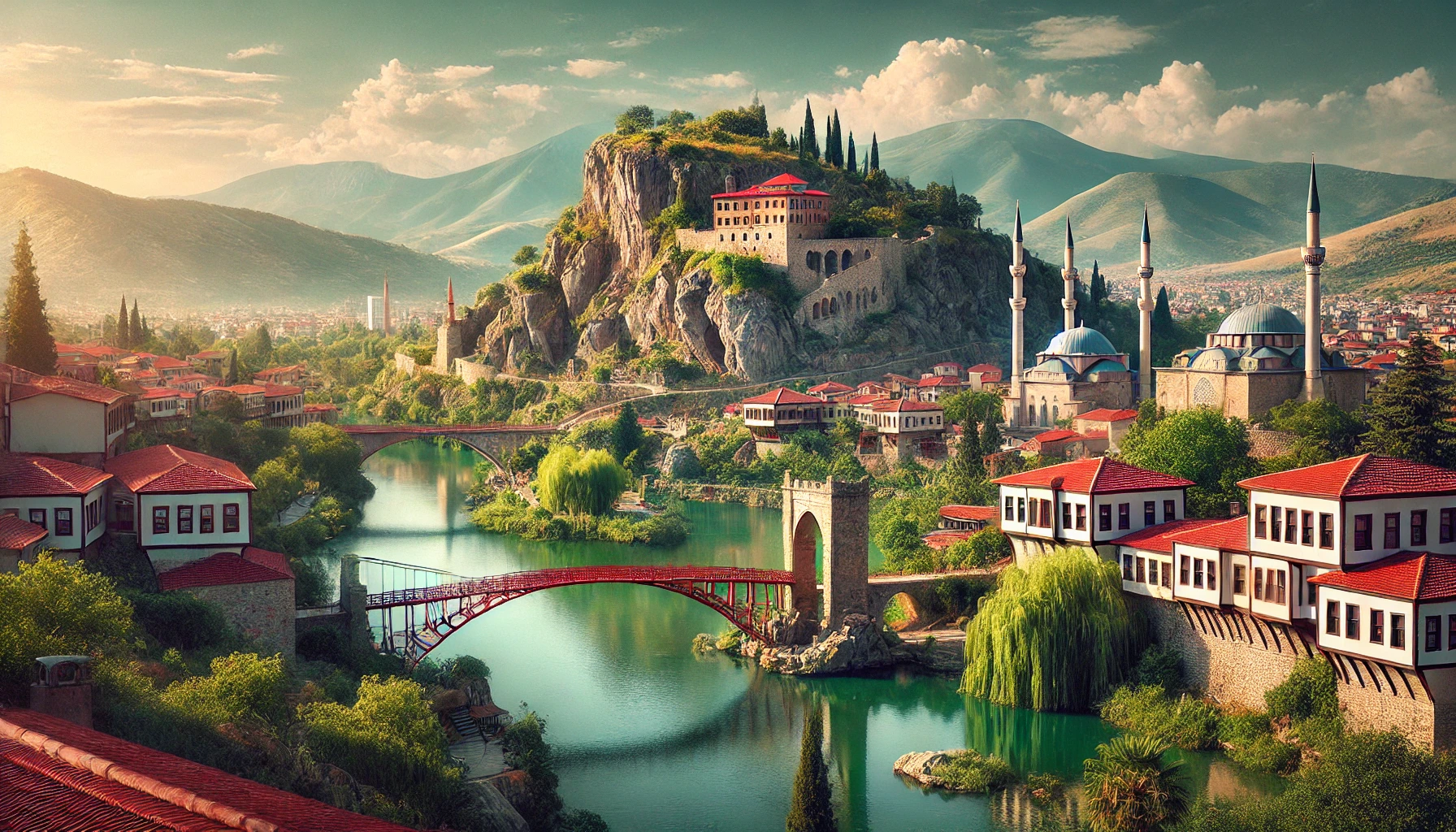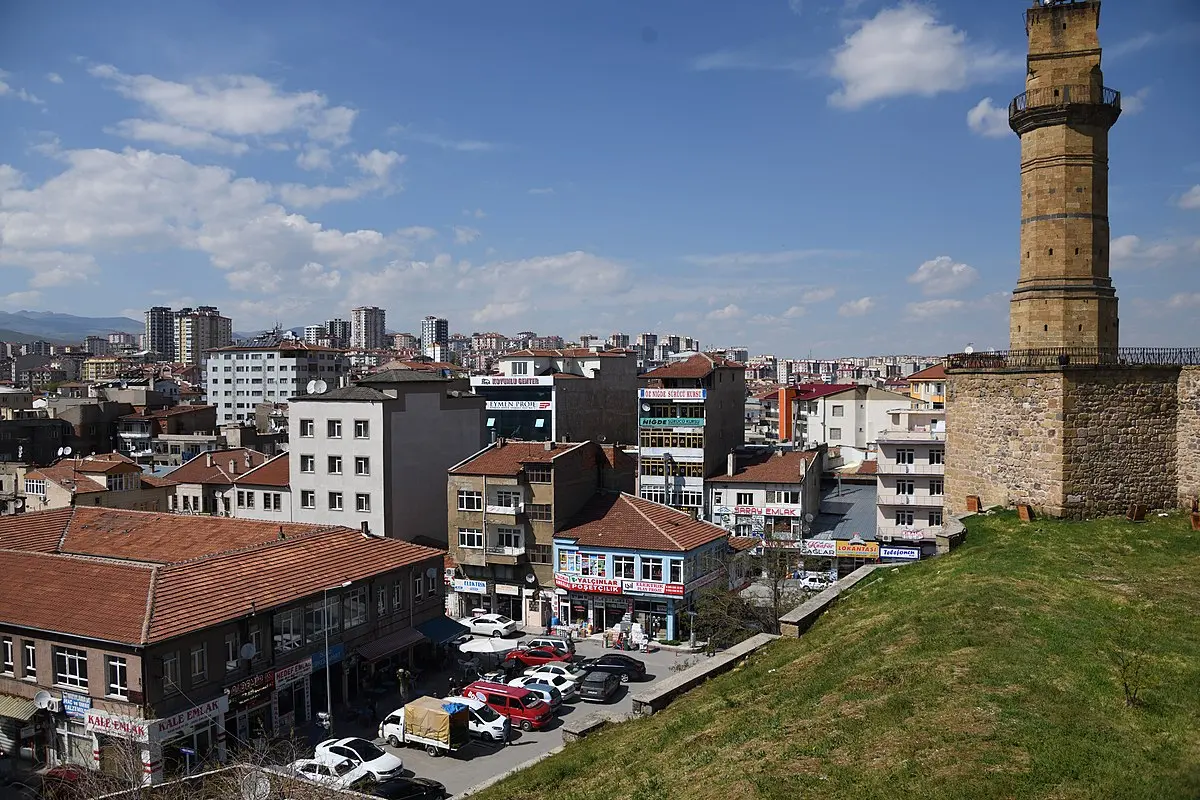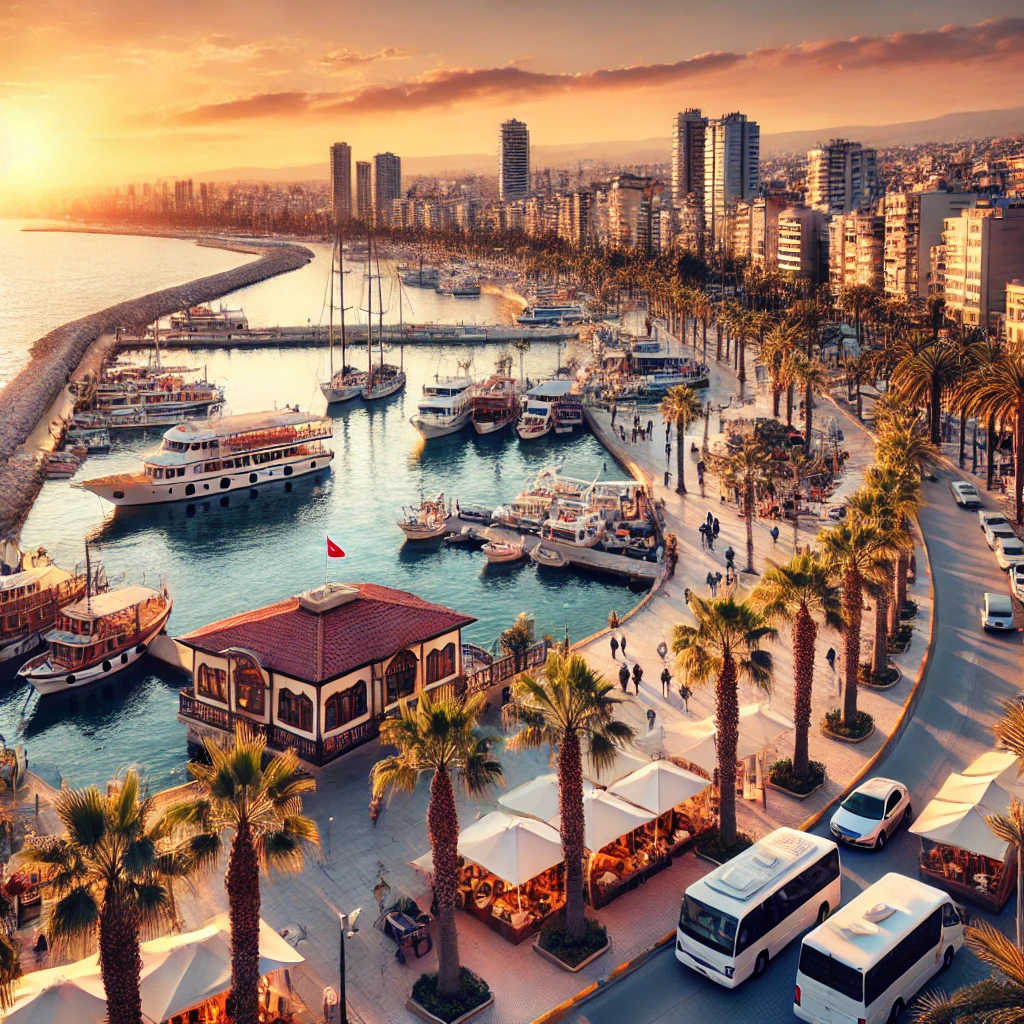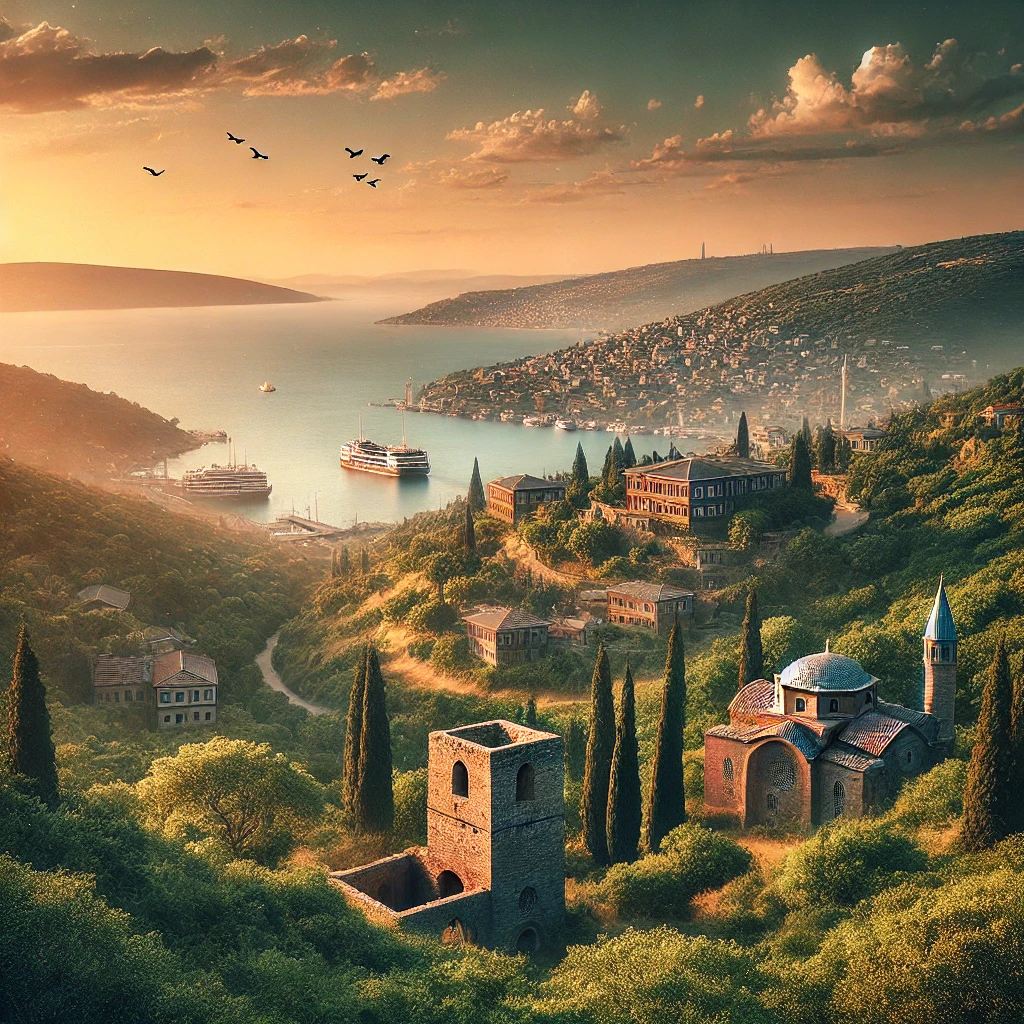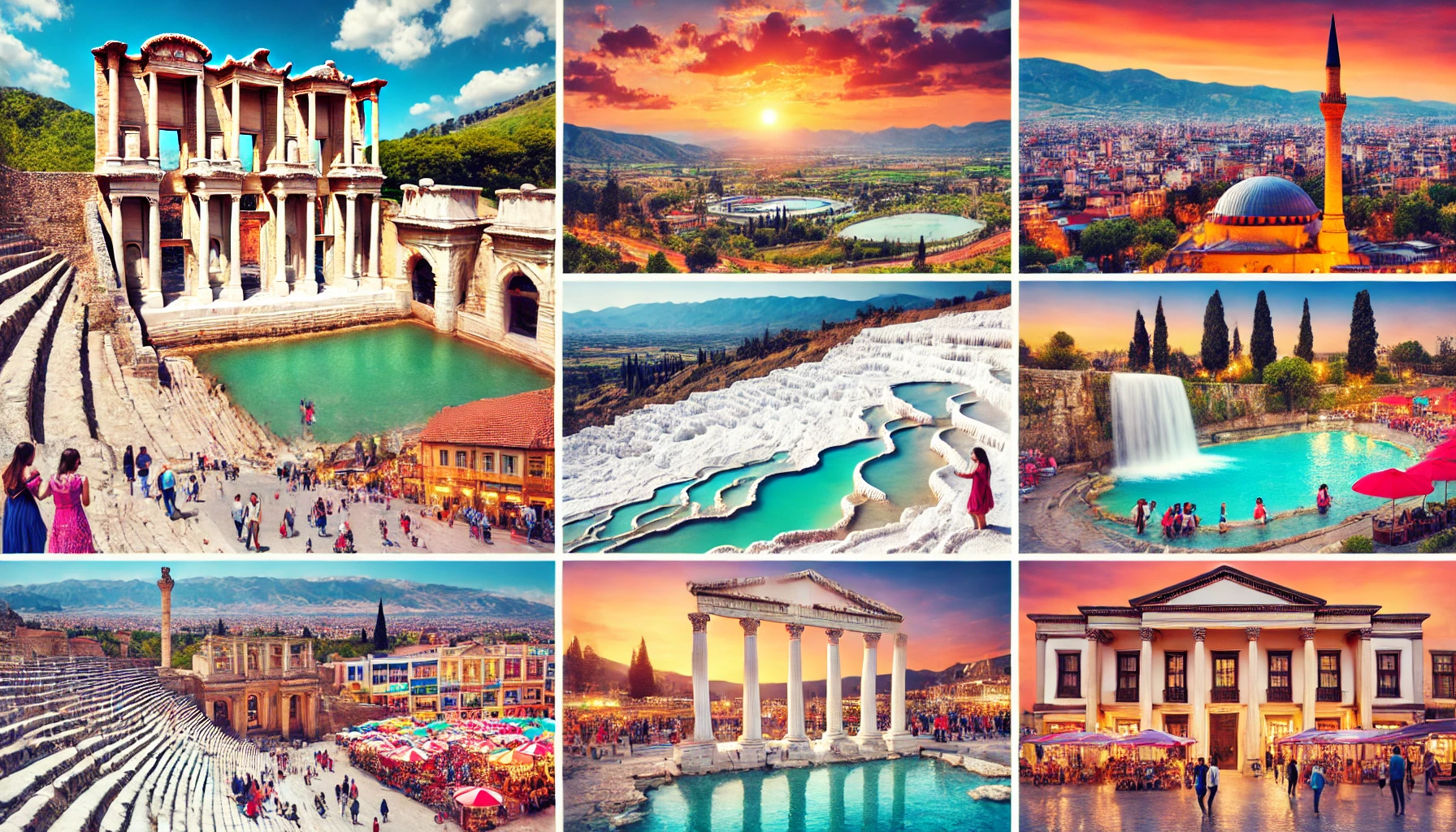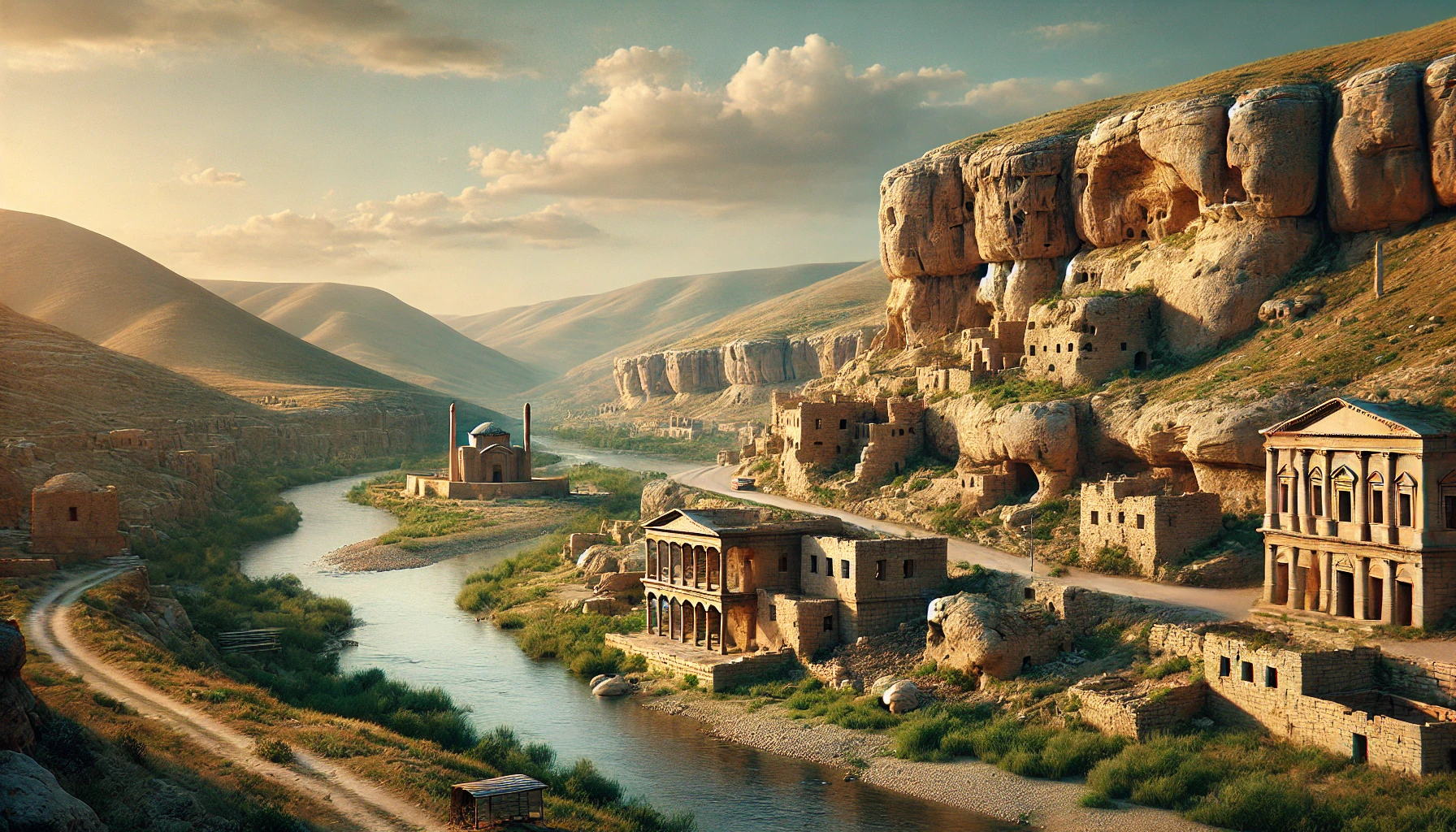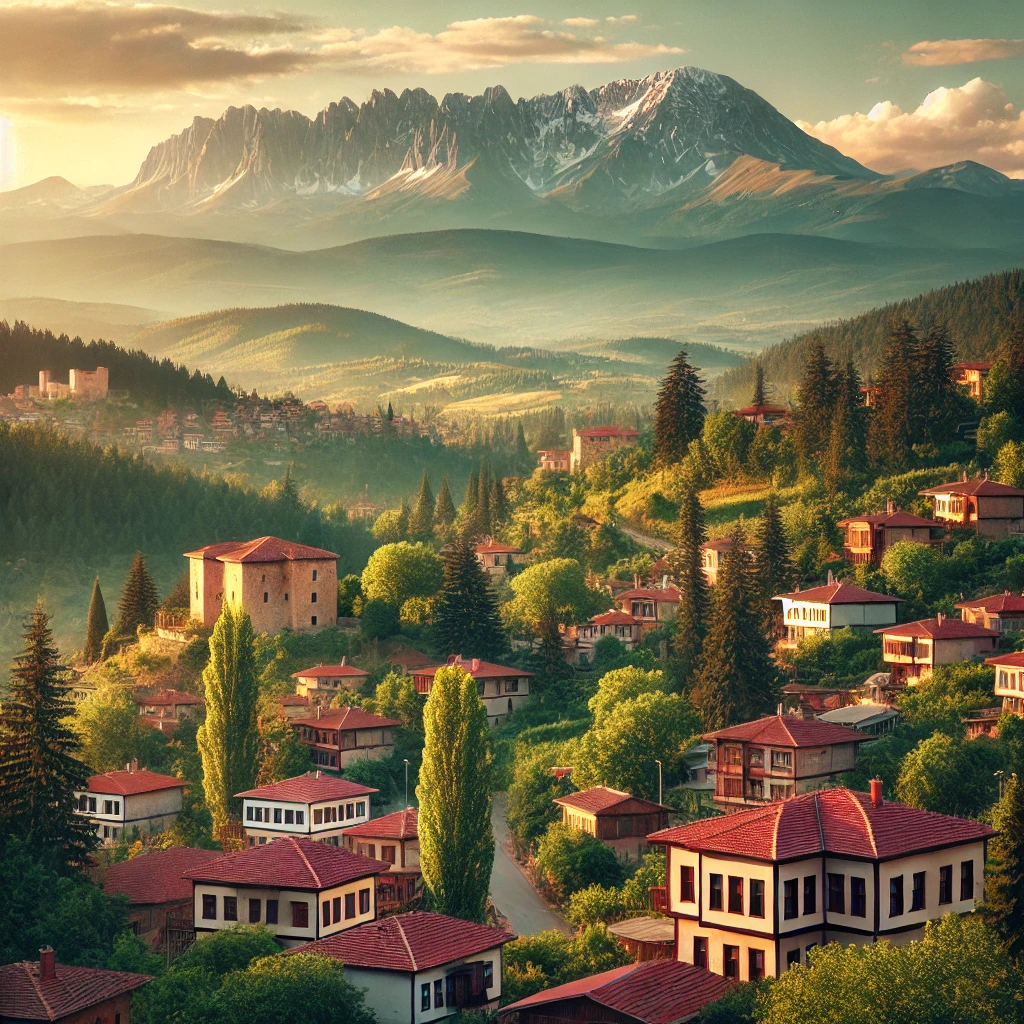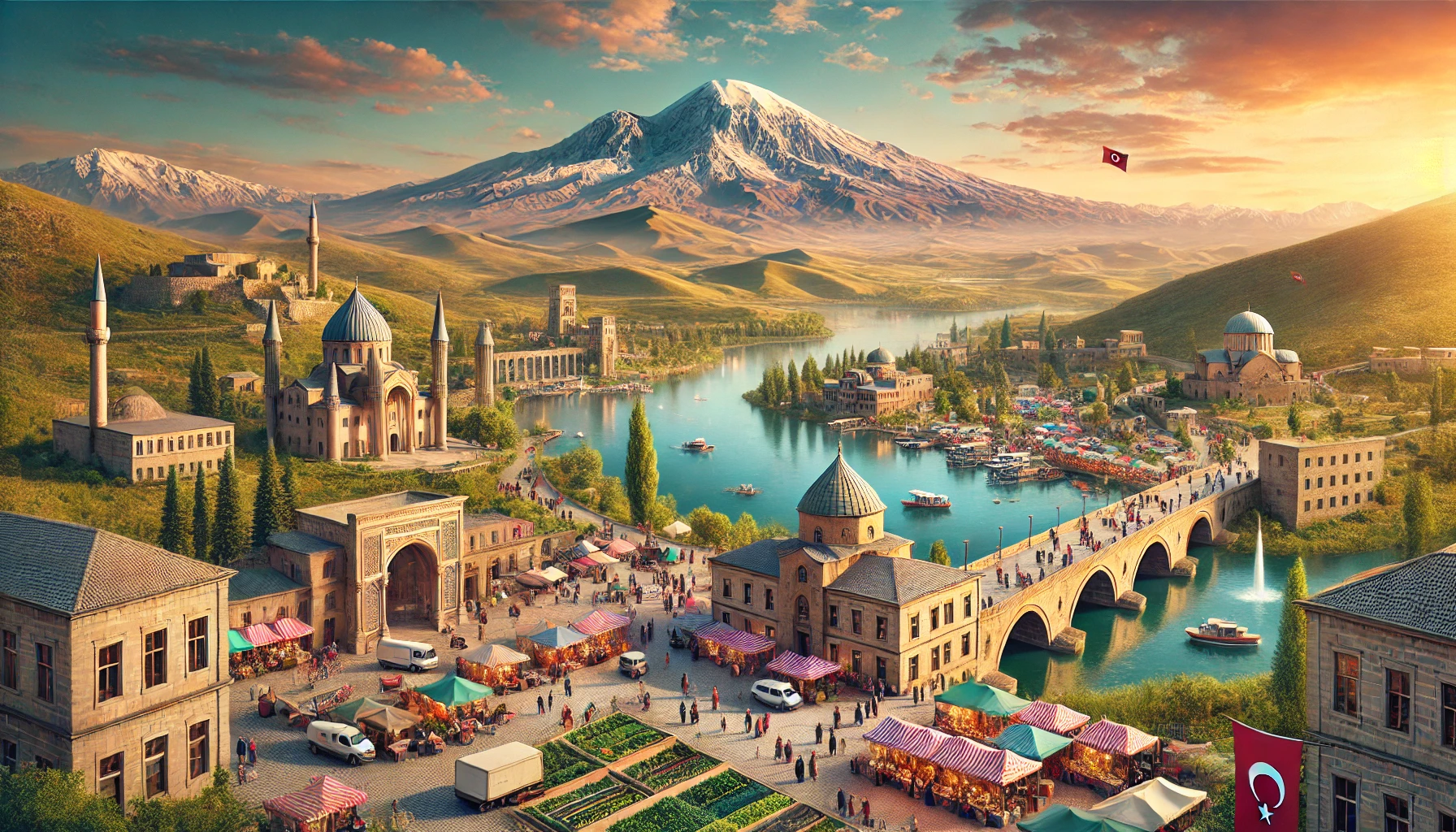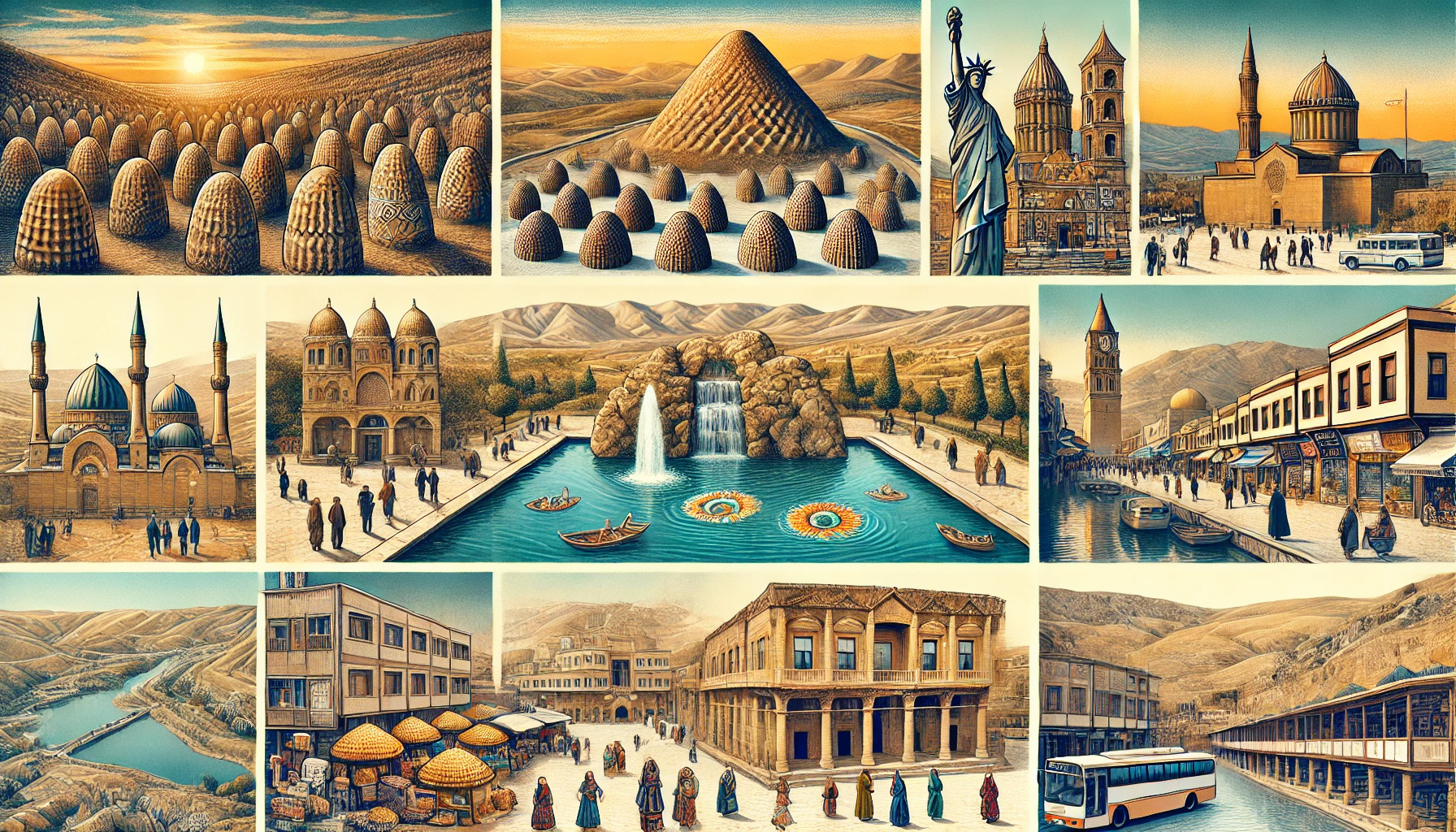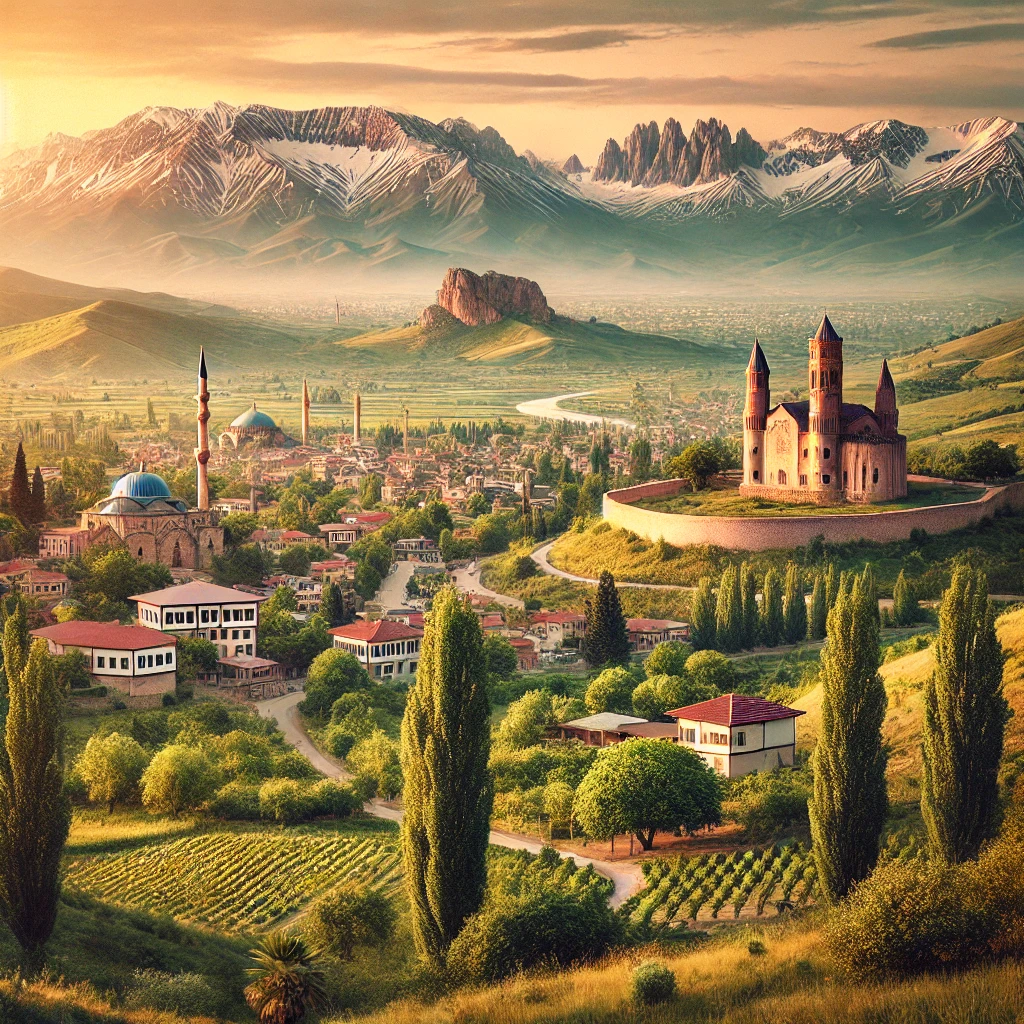Southeastern Anatolia Region: A Journey Through Turkey's Cultural Heartland
The Southeastern Anatolia Region of Turkey is a captivating blend of ancient history, vibrant culture, and breathtaking landscapes. This region, often overlooked by tourists, offers a wealth of experiences for the adventurous traveler. From the bustling bazaars and historical landmarks to the serene landscapes and delicious cuisine, Southeastern Anatolia promises an unforgettable journey through one of Turkey’s most culturally rich areas.
Overview of the Southeastern Anatolia Region
Largest City: Şanlıurfa
Şanlıurfa, often referred to as the “City of Prophets,” is the largest city in the Southeastern Anatolia Region. Known for its historical significance and rich cultural heritage, Şanlıurfa is a city where ancient traditions and modern life coexist harmoniously.
Area and Population
Covering an area of 59,176 km², the Southeastern Anatolia Region is home to approximately 8,576,391 people as of 2021. The region is characterized by its diverse landscapes, including fertile plains, rugged mountains, and vast steppe.
Provinces
The Southeastern Anatolia Region comprises nine provinces, each offering unique attractions and cultural heritage:
Şanlıurfa Area
The City of Prophets
Şanlıurfa is a city steeped in history and legend. Known as the birthplace of the prophet Abraham, it is a major pilgrimage site for many.
Key Attractions
- Göbekli Tepe: Considered the world’s oldest temple, Göbekli Tepe is a fascinating archaeological site that dates back to 9600 BC. Its massive stone pillars are decorated with intricate carvings, offering a glimpse into the region’s ancient past.
- Balıklıgöl (Pool of Sacred Fish): This tranquil pool is believed to be the place where Abraham was thrown into the fire by King Nimrod. The sacred fish in the pool are considered holy, and feeding them is a popular activity for visitors.
- Şanlıurfa Archaeology and Mosaic Museum: This museum showcases a vast collection of artifacts from the region’s rich history, including stunning mosaics and ancient relics.
Gaziantep Area
Culinary Capital of Turkey
Gaziantep, known as the culinary capital of Turkey, is famous for its delicious cuisine and vibrant food culture. The city is also home to numerous historical sites and bustling markets.
Key Attractions
- Gaziantep Zeugma Mosaic Museum: The largest mosaic museum in the world, this museum houses exquisite mosaics from the ancient city of Zeugma. The intricate designs and vibrant colors of the mosaics are truly mesmerizing.
- Gaziantep Castle: This ancient fortress, located in the heart of the city, offers panoramic views of Gaziantep. The castle’s history dates back to the Roman period, and it has been used by various civilizations throughout the centuries.
- Bakırcılar Çarşısı (Coppersmith Bazaar): A bustling market where you can find beautifully crafted copperware, traditional textiles, and other local handicrafts. It’s a great place to experience the vibrant culture of Gaziantep and pick up unique souvenirs.
Mardin Area
A City of Stone and History
Mardin is renowned for its stunning architecture and rich history. The city’s old town, with its narrow streets and stone houses, offers a glimpse into the past.
Key Attractions
- Mardin Old Town: Wander through the narrow, winding streets of Mardin’s old town, where you’ll find beautifully preserved stone houses and historic buildings. The architecture reflects the city’s diverse cultural heritage.
- Deyrulzafaran Monastery: One of the oldest monasteries in the world, Deyrulzafaran Monastery has been a center of Syriac Orthodox Christianity for centuries. The monastery’s ancient buildings and beautiful surroundings make it a must-visit site.
- Zinciriye Medresesi: This historic Islamic school offers stunning views of the city and the Mesopotamian plains. The medrese’s intricate stone carvings and beautiful architecture are truly impressive.
Diyarbakır Area
The Walled City
Diyarbakır is famous for its impressive city walls, which are among the best-preserved in the world. The city’s rich history and vibrant culture make it a fascinating destination.
Key Attractions
- Diyarbakır City Walls: These ancient walls, which stretch for nearly 6 kilometers, encircle the old city of Diyarbakır. They offer panoramic views of the city and the Tigris River.
- Ulu Camii (Grand Mosque): One of the oldest mosques in Turkey, the Ulu Camii is a stunning example of Seljuk architecture. Its intricate stonework and beautiful courtyard are well worth a visit.
- Hasan Paşa Hanı: A historic caravanserai that has been converted into a lively marketplace. Here, you can shop for local crafts and enjoy traditional Turkish tea in a charming setting.
Adıyaman Area
Gateway to Mount Nemrut
Adıyaman is the gateway to Mount Nemrut, one of Turkey’s most iconic archaeological sites. The region offers a mix of historical sites and natural beauty.
Key Attractions
- Mount Nemrut: Home to the famous colossal statues built by King Antiochus I of Commagene, Mount Nemrut is a UNESCO World Heritage Site. The sunrise and sunset views from the summit are breathtaking.
- Cendere Bridge: One of the oldest surviving Roman bridges, the Cendere Bridge spans the Cendere River near the ancient city of Arsameia. The bridge’s impressive engineering is a testament to the skill of the Roman builders.
- Pirin (Perre) Ancient City: An ancient city with rock-cut tombs and ruins that offer a glimpse into the region’s history. The site is located near Adıyaman and is a fascinating place to explore.
Batman Area
Historical Sites and Natural Beauty
Batman, a province rich in history and natural beauty, offers visitors a range of attractions from ancient ruins to stunning landscapes.
Key Attractions
- Hasankeyf: An ancient town with a history that spans over 10,000 years. Despite recent changes due to the construction of a dam, Hasankeyf remains a site of great historical significance with its ancient caves and ruins.
- Malabadi Bridge: A historic bridge that spans the Batman River. Built in the 12th century, the Malabadi Bridge is one of the most beautiful examples of medieval architecture in the region.
- Mount Raman: A prominent mountain offering hiking opportunities and stunning views of the surrounding landscapes. It’s a great destination for nature lovers and adventure seekers.
Siirt Area
Tranquility and Tradition
Siirt is known for its serene landscapes and traditional culture. The region offers a peaceful retreat for those looking to escape the hustle and bustle of city life.
Key Attractions
- Veysel Karani Mosque: A significant pilgrimage site for Muslims, the mosque is dedicated to Veysel Karani, a revered figure in Islamic history. The peaceful surroundings make it a spiritual retreat.
- Tillo (Aydınlar): A small town known for its historical madrasahs and tombs. Tillo is a center of learning and spirituality, with a rich cultural heritage.
- Deliklitaş (Hole Rock): A natural rock formation with a hole in the middle, offering panoramic views of the surrounding countryside. It’s a popular spot for picnics and photography.
Practical Tips for Travelers
Best Time to Visit
The best time to visit the Southeastern Anatolia Region is during the spring (April to June) and autumn (September to November) when the weather is mild and pleasant. Summers can be extremely hot, while winters are generally mild with occasional rainfall.
What to Bring
When traveling to Southeastern Anatolia, pack light, breathable clothing for the summer months and warmer clothing for the cooler seasons. Comfortable walking shoes are essential for exploring historical sites and rugged landscapes. Don’t forget essentials like sunscreen, a hat, and sunglasses to protect against the strong sun.
Getting Around
The region is well-connected by road and air. Major cities like Gaziantep, Diyarbakır, and Şanlıurfa have airports with domestic flights. Buses and car rentals are convenient options for traveling between cities and exploring more remote areas.
Conclusion: Discover Southeastern Anatolia
The Southeastern Anatolia Region of Turkey is a treasure trove of history, culture, and natural beauty. From the ancient ruins of Göbekli Tepe and Mount Nemrut to the vibrant markets of Gaziantep and the serene landscapes of Siirt, this region offers a unique and enriching travel experience. Whether you’re a history buff, foodie, or nature lover, Southeastern Anatolia promises an unforgettable journey through one of Turkey’s most captivating regions.
Latest Update: Aug 4, 2024
Your Content Goes Here
TAGS: Diyarbakır, Diyarbakır city walls, Gaziantep, Gaziantep food, Göbekli Tepe, Hasankeyf, historical sites Turkey, Mardin, Mardin architecture, Mount Nemrut, Şanlıurfa, Southeastern Anatolia natural beauty, Southeastern Anatolia Region, Southeastern Anatolia travel, Turkish cuisine, Turkish culture
Welcome to Diyarbakır, Mardin, Gaziantep, Adıyaman, Şanlıurfa, Batman, Kilis, Şırnak, Siirt
A brief summary of the key points in this article.

